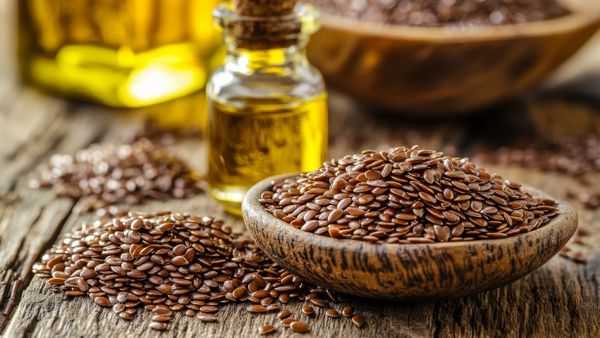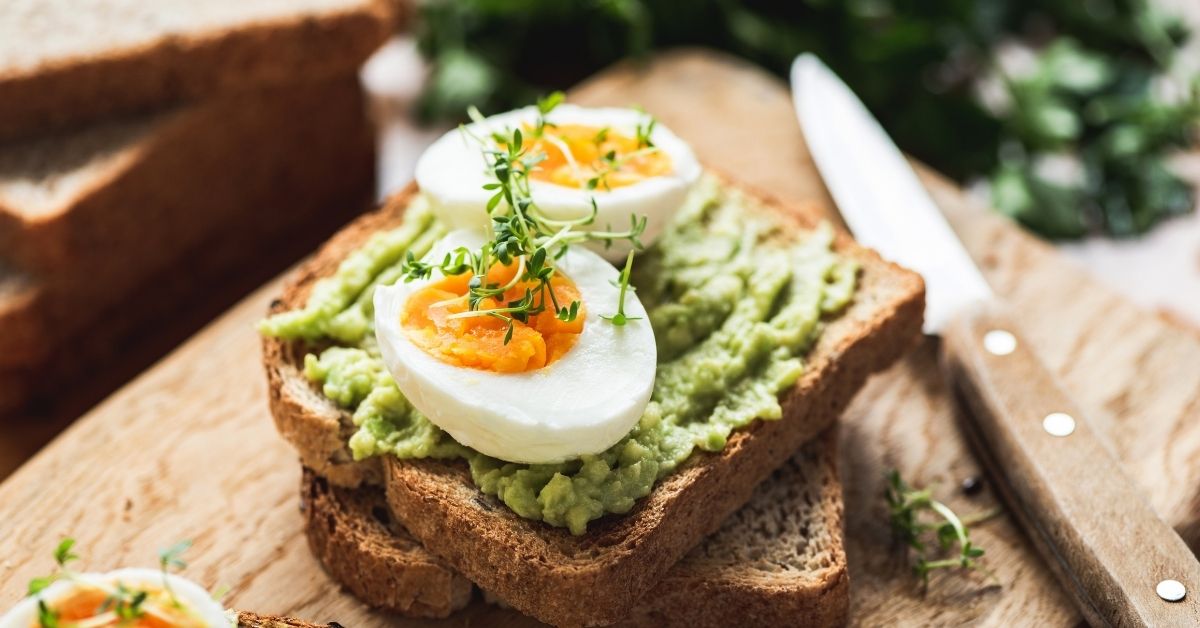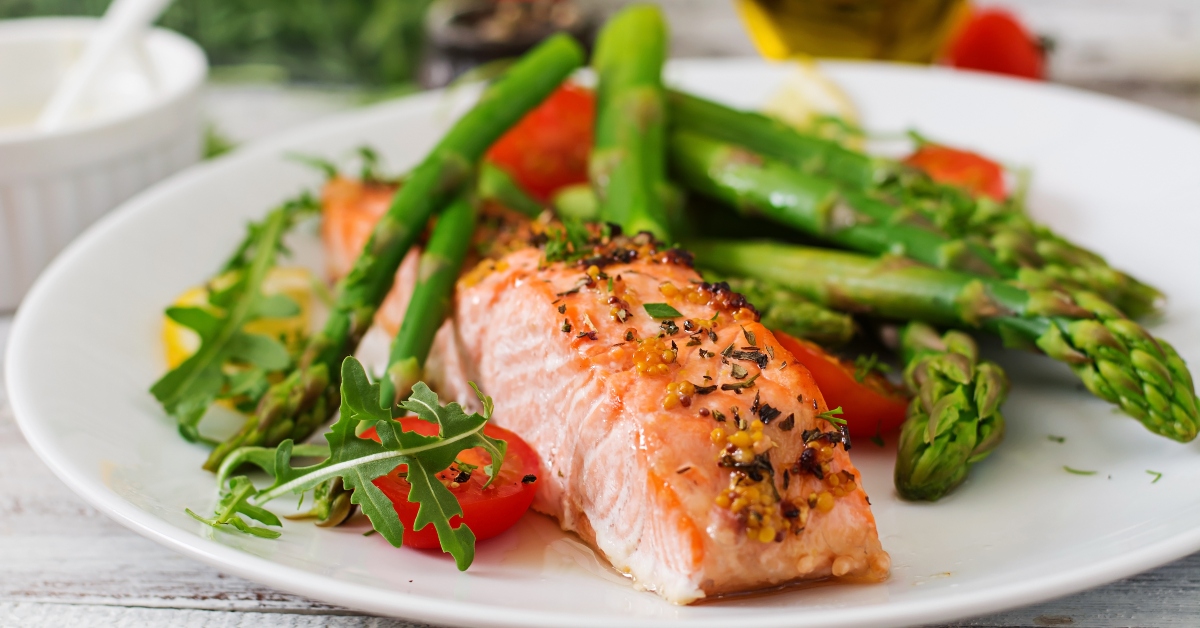A Fuel for Strength Series celebrating Nutrition Month.
You’ve probably heard the phrase “trust your gut.” But did you know that your gut actually does influence your mood?
Scientists call the powerful two-way communication system between your digestive system and your mind the gut-brain axis. It’s often called your “second brain” because your gut produces about 90% of your body’s serotonin, which regulates mood, sleep, and overall emotional well-being.
What you eat doesn’t just fuel your body—it fuels your mind. The right foods can help stabilize mood, sharpen focus, and boost mental resilience. In contrast, the wrong ones can leave you feeling foggy, anxious, or drained.
Read on to learn about the best mood-boosting foods. And the ones that might be secretly sabotaging your mental well-being.
Your gut: The mood command centre
If you’ve ever felt irritable after skipping a meal or sluggish after a heavy meal, you’ve experienced the gut-brain connection in action.
What you eat can help–or hinder–serotonin production and regulation. Because your body’s “feel-good hormone,” serotonin, helps regulate mood and reduce stress, what you eat also affects your mood and stress levels.
Your body needs tryptophan, an amino acid, to make serotonin. And the only way to get tryptophan is through your diet.
Serotonin-boosting foods high in tryptophan
- Unsalted canned tuna (100 g): 372 mg
- Chicken breast (100 g): 237 mg
- Extra firm tofu (100 g): 123 mg
- Eggs (two large): 120 mg
- 2% Milk (250 ml): 108 mg
- Roasted peanuts (60 ml) 94 mg
Try This: Start your morning with eggs and whole-grain toast instead of sugary cereal to help stabilize your mood for the day.
Omega-3s: Support for your brain
Omega-3 fatty acids are brain food—literally. Research suggests that low Omega-3 levels may contribute to depression, while higher intake may help improve mood and cognitive function.
Most studies focus on women, but experts recommend at least 1.6 grams daily for men to support brain health.

Where to get more omega-3s
- Fatty fish: Aim for two 3-4oz servings of salmon, trout, mackerel, tuna, or anchovies weekly.
- Ground flax seeds: Add a tablespoon to smoothies, yogurt, or oatmeal.
- Omega-3 supplements. If you don’t eat much fish, talk to a registered dietitian about a supplement.
Vitamin D: Wards off depression
Feel more sluggish in the winter? You’re not alone.
Vitamin D, often called the “sunshine vitamin,” is linked to mood regulation and mental health. Deficiencies have been connected to depression and anxiety—especially in places like Canada, where sunlight is scarce for half the year.
How to get enough vitamin D
One way is to get at least 15 minutes of sun exposure daily on bare legs and arms. However, here in Canada, our bodies typically cannot make enough vitamin D from the sun from October to March.
Food sources of vitamin D are limited; however, the options below will help you meet your needs.
- Fortified milk (dairy, some plant-based milk)
- Eggs
- Fatty fish
- Soft margarine
Men 18-70 years old need 600 IU of vitamin D daily, which can be hard to get from food alone, particularly during winter. Experts often recommend a vitamin D supplement, especially for men over 50, as they are more prone to osteoporosis.
Gut bacteria: Lowers stress and anxiety
Your gut is home to trillions of bacteria, many of which play a big role when it comes to mental health. Certain probiotic strains have been linked to lower stress levels and improved mood.
Beneficial bacteria, aka probiotics, may help mood disorders like depression and anxiety. While research in this area is exciting, much remains to be explored.
Probiotic-rich foods to try
- Some Yoghurts
- Some Kefirs
Some fermented foods like kimchi, sauerkraut and miso may also help support a healthy gut. However, not all fermented foods are probiotics. Probiotics refer to certain live bacteria that when taken at a specific dose provide a health benefit.
Prebiotics: Fuel for a healthy gut
Probiotics need fuel to survive, and that’s where prebiotics come in.
Prebiotics are a type of dietary fibre that feeds the good bacteria in your gut to keep them alive and thriving. Research suggests they may also help improve mood and reduce symptoms of anxiety and depression.
Prebiotic foods to add to your diet
There are plenty of foods that add more prebiotics to your daily diet.
- Bananas
- Garlic
- Onion
- Tomatoes
- Asparagus
- Artichokes
- Barley
- Rye
You may also find prebiotics in some fortified foods like:
- Granola bars
- Dairy products
- Low-sugar sodas
Mood wreckers: What to watch out for
While some foods boost mood, others can drag it down.
- Highly processed foods – Fast food, chips and sugary snacks can spike blood sugar and lead to crashes when consumed regularly
- Too much caffeine – Can increase anxiety in sensitive individuals.
- Alcohol – A depressant that can mess with serotonin levels.
Food for thought
For better or worse, what you eat directly impacts your mental well-being. Choosing the right foods can help improve mood, but it’s important to note that it is not a replacement for professional support or medical interventions. If you’re struggling with mental health, please reach out to a professional for support.
Visit Dietitians of Canada and learn about Nourish to Flourish: a Nutrition Month campaign highlighting how food brings us together, supports mental health and nurtures communities.
We’d love to hear your thoughts! How have you experienced the connection between your gut and your mood? Share your experiences or questions in the comments below and join the conversation on feeding your gut to fuel your mind.
Get The Right Tool For The Job
Free mental health resources for men. Manage stress, anxiety and depression with Mindfit Toolkit.





Let’s Talk!
Did you enjoy this article? Let us know in the comments.
0 Comments